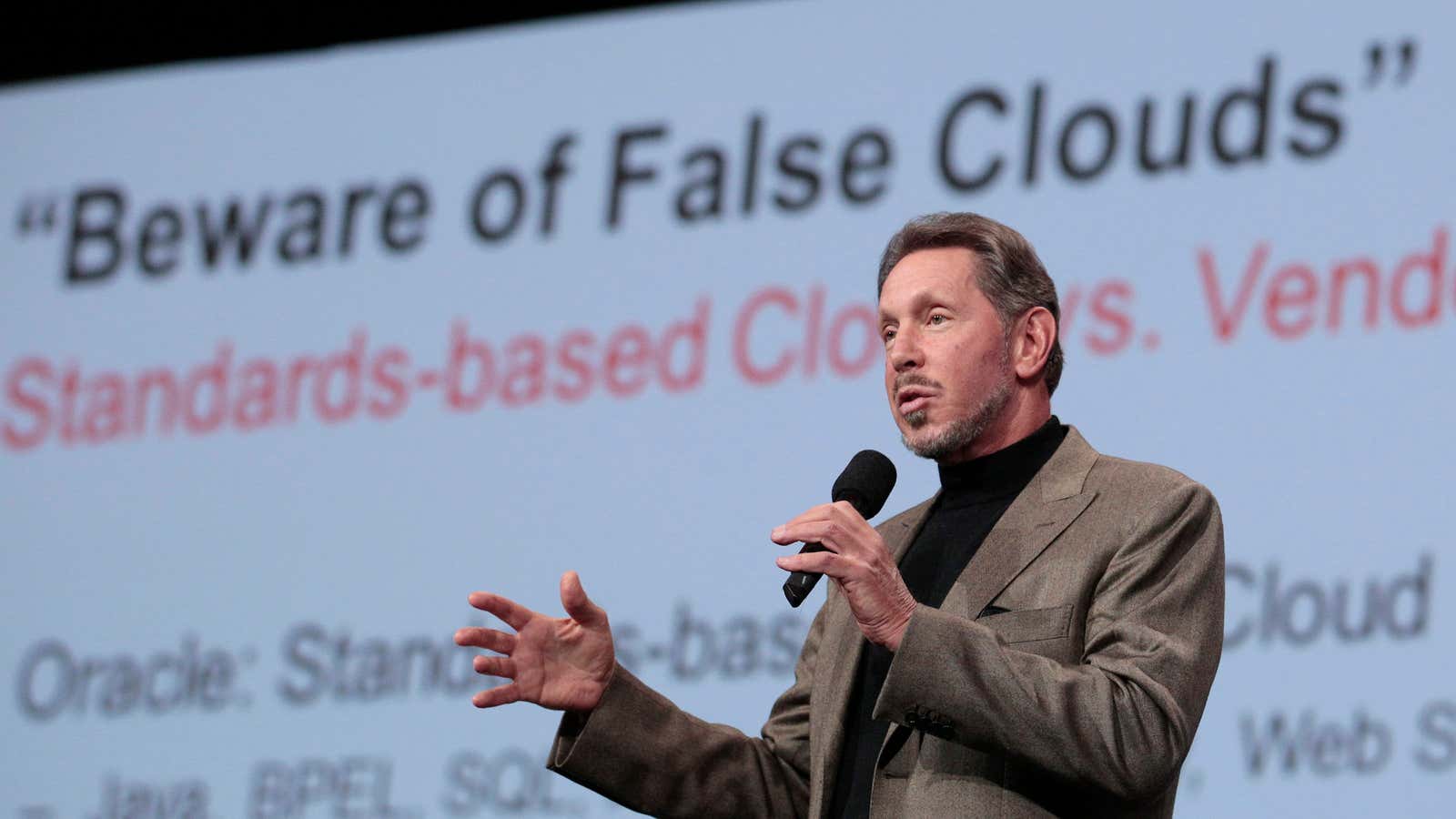For co-founder David Duffield, today’s stunning debut on the NYSE for his human-resources company Workday is something like vindication. Workday is after one segment of the business of Oracle, the same company that captured Duffield’s previous company, Peoplesoft, in a “bitter and highly unusual” hostile takeover in 2005. Despite a higher valuation than any other business software company to go public this year, Workday finished its first day of trading up almost 74%.
So why is Workday doing so well when other tech stocks like Facebook, which held a famously bungled IPO in May, and Zynga are floundering? The simple answer is that while consumer-software firms like Facebook have struggled to figure out a solid business model, Workday is in business software, which is a very different kettle of fish for a number of reasons:
- There’s already a large market for payroll and HR software, and the incumbents, as usual, aren’t nearly as good at disrupting themselves as upstarts have been. As Businessweek notes: ”[Workday] has replaced Oracle and SAP AG (SAP) at businesses including Flextronics International Ltd., Kimberly-Clark Corp. (KMB), Sun Life Financial Inc. and Lenovo Group Ltd.”
- Corporations are flush with cash. Easy-to-use enterprise software, which is Workday’s reason for being, can make workers more productive, so it’s an obvious thing to spend the cash on.
- It also appears that Workday’s solutions are ultimately less expensive than, for example, offerings from Oracle, a company notorious for locking its customers into complicated systems that only Oracle can service.
- This has a lot to do with the fact that Workday’s software lives in the cloud. That is, it’s all hosted by Workday itself, and workers can use it through an ordinary web browser. (This makes it much easier for companies than software that they have to install individually on thousands of computers.) Oracle too has announced that it’s getting into the cloud game, but it seems to consist of putting the cloud inside of the data centers that customers already own. By any conventional definition, that is not the cloud.
- It also doesn’t hurt that Workday’s software is so good that even Google ditched its own home-grown HR system in favor of it.
Less-sexy areas of software development tend to get innovations like cloud-based software later than consumers do. So while many workers take web-based email, productivity and word-processing for granted, the world’s HR managers haven’t been so lucky, at least not until now. The trend, then, is obvious: Cloud-based enterprise software companies that have seen rapid adoption have no reason to expect that their rates of growth will plateau until they’ve captured large portions of existing markets.




